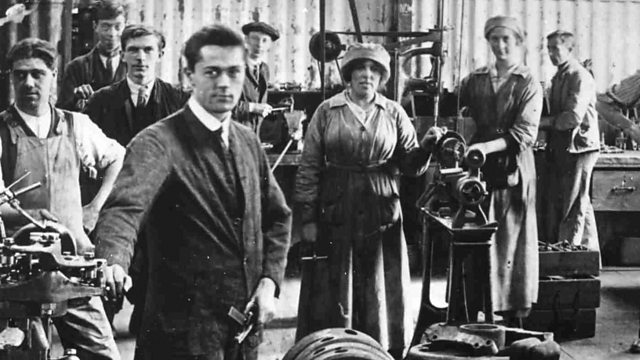Yeovil, Somerset: The Birthplace of Westland
The grate that led to a lucrative enterprise
A series of unloved, old redbrick industrial buildings and a bus depot beside a noisy dual carriageway seem an unlikely reminder of the sacrifices of war. But in the 21st Century the old Nautilus Works at Reckleford are a physical reminder of Yeovil’s World War One heritage.
It was within the walls of these factory units that many of the town’s women escaped domesticity or a life in service when they donned overalls and went to work in heavy industry for the good of the nation. Today, what’s left of the site is far from impressive but what remains links us to a time when the Works were a place of great productivity and pride for the people of this south Somerset town.
The story of the Nautilus Works, and its unlikely name, go back to the early 1880s when James Bazeley Petter was establishing his Nautilus Stove Company, manufacturing an early type of radiator called the Nautilus Grate. James was part of a prominent local family and from the dynasty which gave its name to the worldwide engineering giant, Lister Petter. But why would a West Country firm making grates and kitchen ranges adopt such a name?
Nautilus was the mighty submarine captained by Nemo in Jules Verne’s classic story ‘Twenty Thousand Leagues Under the Sea’. The book was published just ten years before Petter started his business in Yeovil but it’s unlikely to have been the inspiration for his company name. Far more likely is the theory that the inside of Petter’s newly designed fire grate resembled the spiral shell of the nautilus; a deep sea mollusc.
The Nautilus Works opened on the three acre site at Reckleford in 1912 for the manufacture of oil engines. This was state of the art industry for the Edwardian era. Alongside the new assembly shops and machine rooms were purpose-built offices, a foundry and a generating station which would soon be providing power for Yeovil’s first electric street lights.
But two years after the works opened, war broke out and like thousands of firms up and down the country efforts at Reckleford were transferred to war work. It became a munitions factory and by 1915, tens of thousands of shell casings were being made at Petter’s plant.
Photographs from the time show staff standing proudly next to neat triangular piles of metal casements. In the background winches and work benches can be seen; this was the noisy, grease-covered hardware of wartime munitions work. Fascinatingly, a hundred years later some of those winches and at least one of the benches remain in place, like ghostly figures from a bygone era.
The ageing factory buildings made headlines in 2013 when it was claimed that they faced possible demolition because no tenants could be found to take them on.
However, there is another reason why the Nautilus Works deserve greater recognition. Yeovil’s biggest employer and the town’s best-known asset owes its very existence to James Bazeley Petter’s industrial vision. Westland Aircraft (now AgustaWestland) began life in the early years of the 20th Century when Yeovil’s first aeroplane was made at Reckleford. In 1915, Westland officially split from Petter’s to set up as a separate enterprise. Within just a couple of decades, the economy and the fortunes of Yeovil would depend heavily on the ups and downs of the local aero-makers.
And it all began with a Nautilus grate.
Location: The old Nautilus Works, Reckleford, Yeovil BA21 4EJ
Image: Staff at the Nautilus Works, courtesy of the Community Heritage Access Centre
Duration:
This clip is from
Featured in...
![]()
Latest stories from across the UK—World War One At Â鶹ԼÅÄ
A selection of stories from At Â鶹ԼÅÄ's November release.
![]()
Innovations—World War One At Â鶹ԼÅÄ
Where war was the mother of invention
![]()
Â鶹ԼÅÄ Somerset—World War One At Â鶹ԼÅÄ
Places in Somerset that tell a story of World War One
![]()
Technology—World War One At Â鶹ԼÅÄ
Wartime pioneers and innovation
More clips from World War One At Â鶹ԼÅÄ
-
![]()
The loss of HMY Iolaire
Duration: 18:52
-
![]()
Scotland, Slamannan and the Argylls
Duration: 07:55
-
![]()
Scotland Museum of Edinburgh mourning dress
Duration: 06:17
-
![]()
Scotland Montrose 'GI Brides'
Duration: 06:41







